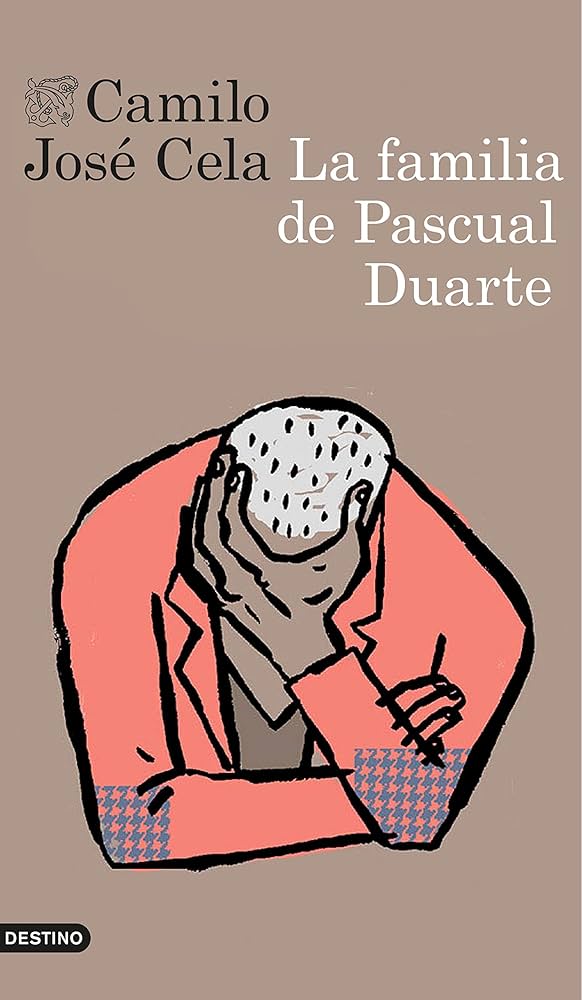Despair creates monsters.
Pascual Duarte, imprisoned in Badajoz and sentenced to death, writes his memoirs in the form of a letter addressed to a friend of the count he murdered. He seeks neither redemption nor justification, only to share his life before his execution.
Born into a troubled family, Pascual is a peasant from Extremadura, a victim of destiny’s fatality and the violence that ravages rural Spain. He responds with the same primitive cruelty to aggression and injustice.
His father, Esteban Duarte Diniz, was a violent alcoholic and smuggler who abused Pascual and his mother, an illiterate and harsh woman who was also violent. His younger brother, Mario, was born with a disability for which he was mistreated until his tragic death. His sister, Rosario, has a relationship with Paco López, known as “El Estirao,” who takes advantage of her and prostitutes her, provoking Pascual’s anger, which leads him to kill Paco.
Despite marrying twice, violence and his past prevent him from being truly happy. Lola, his first wife, is tormented by the loss of her child and becomes pregnant by “El Estirao” before dying. His second marriage is to Esperanza, a sweet woman who always loved him, but with whom he could never be happy due to his turbulent past.
His account is a raw testimony of violence, desperation, and the struggle for survival in a hostile environment; a powerful portrait of a rural Spain marked by hatred and violence.
RELEVANT INFORMATION:
The family of Pascual Duarte is the most translated Spanish book into other languages after Cervantes’ “Don Quixote,” with more than two hundred editions currently. It has received prestigious awards, including the Nobel Prize in Literature, the Cervantes Prize, and the Prince of Asturias Award for Literature.
It is a “tremendist” novel that reflects on the human condition in a decadent rural environment filled with violence and social marginalization, degrading humans to animals dominated by rage and primal instincts. With this work, Camilo José Cela, one of the most illustrious authors of Hispanic literature, denounces the reality of post-war Spanish society, a theme he also addresses in another of his great works, La colmena.
AUDIOVISUAL POTENTIAL: TV Series, Miniseries, Film, TV Film.
AVAILABLE LANGUAGES: Spanish, French, English, Arabic, Turkish, Italian, Greek, Georgian, Portuguese, Indonesian, Polish, Romanian, Dutch, German, Swedish, Armenian, Icelandic, Hindi, Croatian, Filipino, Macedonian, Finnish, Korean, Slovenian, Japanese, Chinese.

Adquirir los derechos
Para ponerte en contacto con nosotros completa el siguiente formulario y te responderemos en breve.

